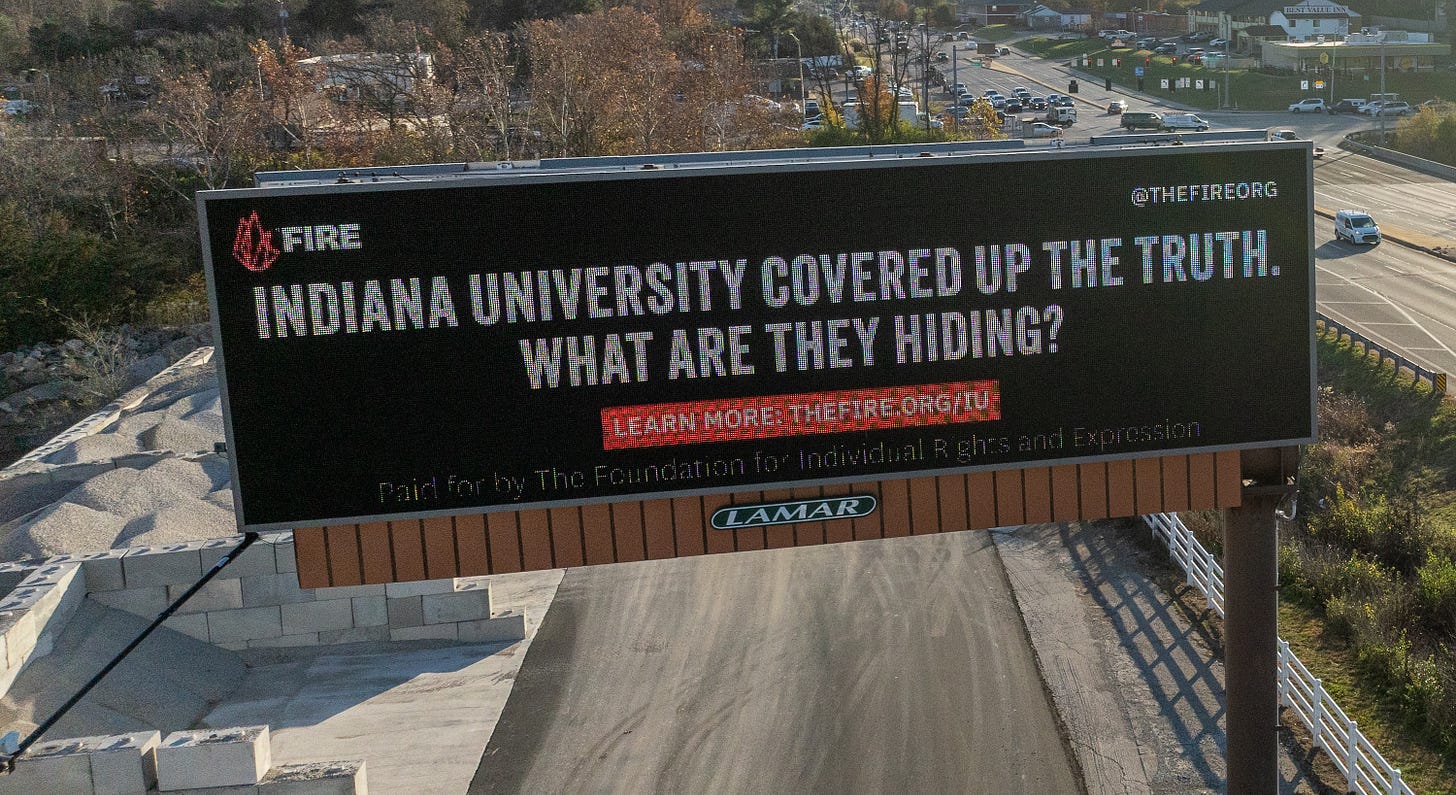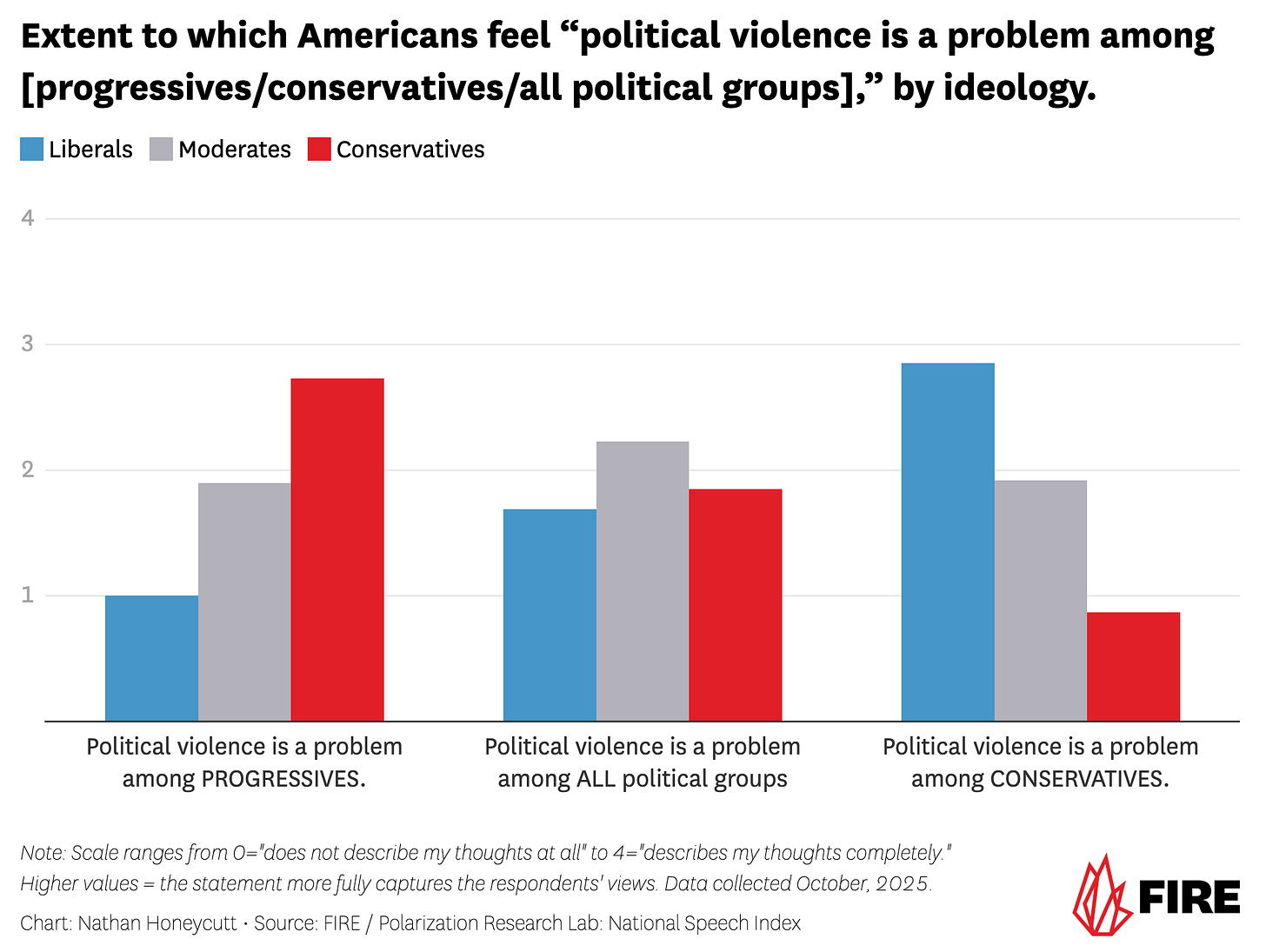FIREwire — November 14, 2025
Fighting censorship at Indiana University, a new FIRE poll sets off alarm bells, and five laws to protect free speech.
“I had a sniper gun pointed at me when trying to defend a protest that was in compliance with school policies.” — Indiana University student comment in FIRE’s 2026 College Free Speech Rankings
Snipers, censorship, and unaccountability
For a university whose motto celebrates “light and truth,” Indiana University has turned its own tradition of protest into grounds for punishment. Student editors at the Indiana Daily Student ran two straightforward, newsworthy pieces: one on the university’s suspension of the Palestine Solidarity Committee, another on its abysmal score in FIRE’s 2026 College Free Speech Rankings. Students say university administrators pressured them to suppress the coverage. When they refused, the university ordered the paper’s print edition halted just before homecoming.
IU has since reversed the print shutdown amid national outcry and a federal lawsuit, but problems remain — as does FIRE’s position: Control at an editorially independent student paper belongs to the students, not to administrators.
Three-quarters of Americans say free speech is headed in the wrong direction
A new FIRE survey finds that a record number of Americans now believe that freedom of speech in the country is headed in the wrong direction. Notably, drops in confidence across all political parties contributed to the record-levels of pessimism.
“In the last three months, America watched as Charlie Kirk was murdered for simply debating on a college campus, followed immediately by a wave of censorship of those who opposed his views,” said FIRE Research Fellow & Polling Manager Nathan Honeycutt. “It’s no surprise that a record number of Americans of all parties now think that it’s a dire time for free speech in America.”
Five laws FIRE wants on the books to protect free speech
Even with the robust protections offered to us by the First Amendment and the decades of decisions made by our federal and Supreme courts, defending free speech is still difficult business. Infringements on our rights often take advantage of loopholes and gaps in our legal frameworks, leading to actions — particularly from those in power — that violate our expressive rights and chill free speech.
That’s why FIRE has long championed a variety of proposals to help safeguard free expression from government attacks and abuse, including federal legislation. But what would that legislation look like? This week, FIRE outlined five legislative proposals we’ve recommended to Congress to bolster free speech rights for everyone and make censorship by federal officials more difficult — no matter what party is in power.
Below the fold
George Mason University demanded pro-Palestinian student group remove video from social media, but public universities can’t do that.
In Congress, the NO FAKES Act claims to promise deepfake fixes, but its restrictions on expression would chill news, history, art, and everyday speech.
At Texas State University, “value-neutral” curriculum review promises open inquiry — but strict enforcement could infringe on free speech on campus.
In the frame
On the “So to Speak” podcast, FIRE Executive Vice President Nico Perrino is joined by Ronnie London and Conor Fitzpatrick to discuss the Supreme Court’s oral argument in the conversion therapy case, the Pentagon’s new press rules, Indiana University’s censorship rampage, and where the situation stands with visa and green card holders who say things the feds don’t like.
This week’s datapoint
In the latest iteration of the National Speech Index survey, Americans shared with us how much of a problem they perceive political violence to be among progressives and among conservatives. In a near perfect demonstration of how polarized Americans are, liberals perceive violence to be a greater problem among conservatives, and conservatives perceive it to be a problem among progressives. And moderates, being moderates, perceived political violence to be equally problematic across the board.




